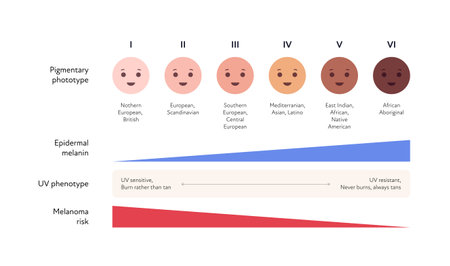Introduction: The Prevalence of Sleep Loss Among UK Parents
Sleep deprivation is a widespread issue for parents across the United Kingdom, affecting families from bustling London boroughs to the tranquil countryside. Recent surveys by the National Childbirth Trust and NHS have highlighted that over 60% of British parents with children under five report chronic sleep loss. This phenomenon is not confined to newborn stages; ongoing night wakings, bedtime struggles, and early rising can persist well into primary school years. Consider Sarah, a mum from Manchester, who finds herself awake at 3am settling her toddler after nightmares, or Tom, a single dad in Birmingham, who juggles work and parenting on just four hours of sleep. These real-life scenarios underline a national trend where sleep deprivation has become almost a rite of passage for British parents. The table below illustrates key findings from recent UK-based research:
| Age of Children | % Parents Reporting Sleep Loss | Main Causes |
|---|---|---|
| 0-1 years | 78% | Night feeds, unsettled sleep |
| 2-5 years | 65% | Nightmares, separation anxiety |
| 6-11 years | 42% | Bedtime resistance, early waking |
This data paints a vivid picture: sleep loss is not merely an inconvenience but an enduring challenge for families throughout the UK. Understanding its prevalence sets the stage for exploring its deeper impact on parental mental health and the unique cultural context within Britain.
2. Understanding the Psychological Toll: Parental Mental Health Challenges
Sleep deprivation is an all-too-familiar experience for many British parents, especially during the early years of a child’s life. The emotional and cognitive impact of insufficient rest often goes beyond simple tiredness, seeping into everyday interactions and shaping parental mental health in profound ways. In the UK, where awareness of mental well-being is growing, parents report heightened levels of anxiety, persistent low mood, and increased frustration when sleep is consistently disrupted. These symptoms can make it difficult to cope with daily demands, leading to a cycle that further erodes both parental confidence and family harmony.
The Emotional Impact of Sleep Loss on Parents
For many mums and dads across Britain, lack of sleep can amplify feelings of worry and overwhelm. It’s not uncommon to feel irritable or unusually short-tempered after another night of broken sleep. Over time, these emotions may settle into more persistent states, such as chronic anxiety or even symptoms associated with depression. These emotional challenges are compounded by societal expectations—British parents often feel pressure to “keep calm and carry on,” making it harder to seek support or admit vulnerability.
Cognitive Effects: Concentration, Memory, and Decision-Making
From forgetting school run times to struggling with work deadlines, British parents experiencing sleep loss frequently notice lapses in memory and concentration. The foggy-headed feeling that comes from disturbed nights can impact decision-making abilities—an effect that can feel particularly stressful when juggling work-life balance or making choices about a child’s care and development.
Common Psychological Symptoms Experienced by UK Parents Due to Sleep Loss
| Symptom | Description | Common Triggers |
|---|---|---|
| Anxiety | Excessive worrying, restlessness, or feelings of panic | Night wakings, feeding issues, health concerns |
| Low Mood/Depression | Sustained sadness, loss of motivation, withdrawal from social activities | Prolonged sleeplessness, isolation, lack of support |
| Frustration/Irritability | Easily upset or angered by minor challenges | Lack of downtime, routine disruptions |
| Poor Concentration | Trouble focusing on tasks or remembering details | Fragmented sleep patterns, multitasking demands |
Recognising these psychological effects is an important first step for British parents seeking to maintain their own well-being while nurturing their children. Open conversations with health visitors or GPs can provide valuable guidance tailored to the unique pressures faced by families in the UK.

3. Family Dynamics and Parent-Child Interaction
Sleep deprivation can have a profound impact on the intricate dynamics of British family life. When parents are chronically tired, their ability to engage positively with their children may be compromised, leading to shifts in parenting styles and the overall quality of attachment. In the UK, where routines and structure often play a significant role in family life, disrupted sleep patterns can contribute to increased tension within the household.
Research has shown that tired parents are more likely to display irritability, impatience, and reduced emotional availability. This can affect how they respond to their child’s needs, sometimes resulting in less warmth or inconsistent discipline. Over time, these changes may influence a child’s sense of security and attachment.
| Aspect | Effect of Sleep Loss | Potential Outcome for Families |
|---|---|---|
| Parenting Style | More authoritarian or inconsistent responses | Increased behavioural issues in children |
| Emotional Connection | Reduced patience and empathy | Weaker parent-child bond |
| Family Routines | Disrupted meal times and bedtimes | Greater household stress |
| Attachment Security | Less responsive caregiving | Anxious or avoidant attachment patterns in children |
The Unique Context of British Families
British families often value clear boundaries and routines, such as regular tea times and bedtime rituals. However, ongoing sleep loss can disrupt these cherished practices, making it harder for parents to maintain consistency. In addition, societal expectations—such as the “stiff upper lip” approach—may discourage parents from seeking help, further exacerbating stress within the home.
Nurturing Connection Despite Challenges
It is important for British parents to recognise when sleep deprivation is affecting their interactions with their children. Small adjustments, such as sharing nighttime duties or seeking support from local resources like health visitors or parenting groups, can make a meaningful difference. By prioritising rest and open communication within the family, parents can foster resilience and strengthen their relationships—even during challenging periods.
Cultural Attitudes towards Sleep and Parenting in Britain
Understanding how British culture shapes parental experiences around sleep loss is crucial when considering its impact on mental health. In the UK, prevailing social expectations often encourage parents to “keep calm and carry on” even when faced with significant sleep deprivation. This attitude can sometimes lead to parents feeling isolated or reluctant to seek help, believing that sleeplessness is just part of the parenting journey.
Social Expectations and Parental Pressures
British society tends to value resilience and stoicism. While these traits can foster independence, they may also discourage open conversations about exhaustion and mental health struggles. Many new parents report feeling pressure to manage sleepless nights without complaint or external support, especially in communities where extended family support is less accessible.
Support Systems in the UK
The availability of support systems varies across Britain. While there are NHS services, health visitors, and local parent groups offering guidance, awareness and access can depend heavily on region and socioeconomic background. The following table outlines common sources of support for British parents experiencing sleep loss:
| Support Resource | Description | Accessibility |
|---|---|---|
| NHS Health Visitors | Offer advice on infant sleep patterns and parental wellbeing. | Widely available but with regional differences in capacity. |
| Local Parent Groups | Peer support for sharing experiences and coping strategies. | More accessible in urban areas; rural coverage varies. |
| Online Communities (e.g., Netmums, Mumsnet) | Forums for advice, emotional support, and shared stories. | Easily accessible nationwide. |
| Charities (e.g., Mind, Family Lives) | Mental health resources tailored for parents. | Nationwide but may require self-referral. |
The Role of British Cultural Norms
Cultural norms influence how parents interpret their own struggles with sleep loss. In many British families, there remains a sense of privacy around discussing vulnerabilities, which can make it harder for individuals to reach out for help. However, there is a growing movement towards normalising conversations about mental health within parenting circles—helped by national campaigns and increased media attention—which offers hope for reducing stigma and improving access to support.
5. Accessing Support: UK-Based Resources and Community Initiatives
Parental sleep loss can feel isolating, but a wealth of UK-specific support is available for those navigating the mental health impacts of sleepless nights. From NHS services to grassroots community groups, parents are not alone on their journey towards better rest and emotional wellbeing.
NHS Services
The National Health Service (NHS) offers various resources tailored to parental mental health and sleep concerns. Parents can speak with their GP about persistent sleep problems or low mood, who may refer them to counselling, cognitive behavioural therapy (CBT), or specialist sleep clinics. The NHS also provides digital tools, such as the Every Mind Matters platform, offering practical advice on managing stress and improving sleep hygiene.
Charities and Helplines
| Name | Description | Contact/Website |
|---|---|---|
| MIND | Supports mental health with specific guidance for parents struggling with anxiety, depression, or stress due to sleep deprivation. | mind.org.uk |
| The Lullaby Trust | Offers advice on safe infant sleep and supports bereaved families. | lullabytrust.org.uk |
| PANDAS Foundation | Specialises in perinatal mental health, including peer support for mothers and fathers affected by postnatal depression and anxiety. | pandasfoundation.org.uk |
| Samaritans | A confidential helpline for anyone in distress or needing someone to talk to at any hour. | 116 123 / samaritans.org |
Online Platforms and Peer Groups
Online communities offer connection and understanding from fellow parents experiencing similar challenges. Forums like Mumsnet, Netmums, and Facebook parenting groups host discussions on sleep struggles and share local meet-up information. These platforms can be especially helpful during night feeds or moments of loneliness.
Local Community Initiatives
Across the UK, children’s centres, Sure Start programmes, and family hubs often run drop-in sessions for new parents. Here, families can access professional advice, connect with others facing similar issues, and find workshops on topics like infant sleep routines or mindfulness for parents. Local councils typically list these resources on their websites.
Cultivating Connection and Resilience Together
No parent should shoulder the burden of sleep deprivation alone. By reaching out—whether through a chat with your GP, attending a local group, or joining an online forum—families across Britain can build resilience together and nurture a healthier environment for both parents and children.
6. Practical Strategies for British Parents
Ensuring healthy sleep patterns within the family is crucial for protecting parental mental health, especially when navigating the unique demands of British life. Here are some culturally relevant strategies tailored to common UK routines and environments:
Establishing a Consistent Family Routine
In many British households, structured routines provide comfort and predictability. Setting regular bedtimes—even on weekends—can help children and parents alike signal to their bodies that it’s time to wind down. Consider aligning sleep schedules with typical school start times and local daylight hours, which vary significantly across the UK.
Optimising Sleep Environments
The UK’s climate and housing styles can influence sleep quality. To combat early morning light in summer or draughty winters, invest in blackout curtains and ensure rooms are kept at a comfortable temperature (ideally 16-18°C). White noise machines or soft playlists featuring gentle British rain sounds may also help mask urban noises common in city living.
Practical Sleep Hygiene Tips for UK Families
| Strategy | British Context & Example |
|---|---|
| Limit Evening Screen Time | Encourage traditional bedtime stories or audio books from BBC Sounds rather than TV or tablets before bed. |
| Caffeine Awareness | Avoid late-evening cups of tea; opt for decaf or herbal blends such as chamomile after 5pm. |
| Embrace Outdoor Activity | Take advantage of local parks or the countryside for daily walks, helping regulate natural sleep rhythms. |
| Community Support | Connect with local parent groups (e.g., NCT) for mutual support and shared tips on managing night-time parenting challenges. |
Seeking Help: British Resources for Parental Wellbeing
If persistent sleep loss is affecting your wellbeing, don’t hesitate to reach out. The NHS offers guidance on sleep hygiene, while charities like Mind provide mental health support tailored to parents. Local Children’s Centres often host workshops on infant sleep and stress management—use these resources to build resilience.
Nurturing Parent-Child Connections Amid Sleep Challenges
Remember, open communication is key. Share your feelings with trusted partners or friends and involve older children in creating calming bedtime rituals, such as reading classic British tales or practising simple mindfulness together. These small acts foster emotional closeness, reinforcing that while sleepless nights may be part of parenting, support and solutions are always close at hand in communities across the UK.


